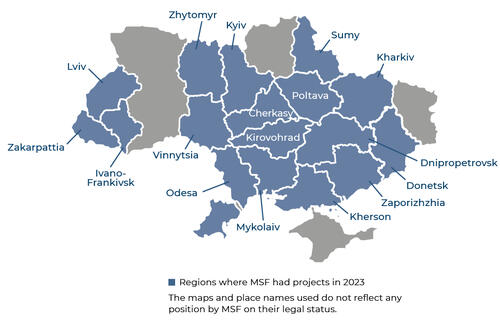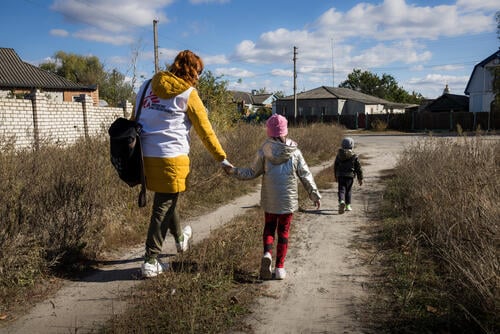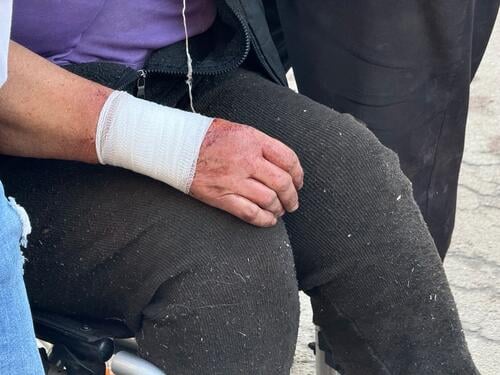Our teams continue to respond to the war in Ukraine. We currently have approximately 20 international and 350 Ukrainian staff working in response to the war across the country. They work as medical staff (surgeons, doctors, nurses); psychologists; logisticians and administrators. Here is how we are responding:
Medical evacuations: Our teams evacuate patients from hospitals close to the frontlines, including war-wounded patients, and refer them to hospitals in safer areas through a fleet of 18 ambulances operating across Ukraine. Some of the ambulances are equipped for intensive care support. Run by a team of paramedics, doctors, and drivers, the ambulances have referred over 20,000 patients since 2023.
Emergency services: In Kherson city, an MSF medical team supports surgical and trauma activities. Medical teams run triage and operating theatre activities and perform surgeries. Our staff also provide treatment during mass casualty events in the hospitals close to the frontline.
Support to hospitals: We send donations of medical supplies and hygiene kits to medical facilities, and provide training support for emergency responses, managing a high influx of war wounded, decontamination, trauma, early physical rehabilitation and mental health. Donations from MSF have also been used to restore hospitals damaged by shelling in Donetsk region, Kherson, and Dnipropetrovsk regions.
Mobile clinics: MSF mobile clinics provide basic healthcare services, psychological counselling and social services, sexual and reproductive health services, mental healthcare and health promotion. Through these mobile clinics, we also provide medicines for people with chronic illnesses such as hypertension, asthma, diabetes, heart disease and epilepsy. Severely unwell patients are referred to hospitals. Through our mobile clinics in the Kherson and Mykolaiv regions, we are now screening for tuberculosis.
Mental health: Our teams provide mental health support through mobile clinics in areas where it’s hard for patients to access healthcare, particularly in rural areas and shelters for people displaced by the war. In 2023, a dedicated centre for people experiencing war-related post-traumatic stress disorder was opened in Vinnytsia. There, we offer psychological sessions for patients and people in their support network. Our specialists provide them with techniques to help reduce and prevent worsening of symptoms, increase coping skills, improve interpersonal functionality, and decrease the consequences of traumatic stress.
Physiotherapy: MSF teams are supporting seriously injured post-surgery patients with specialised physiotherapy and post-operative care in Cherkasy region and Odesa in order to aid in their longer term recovery.






